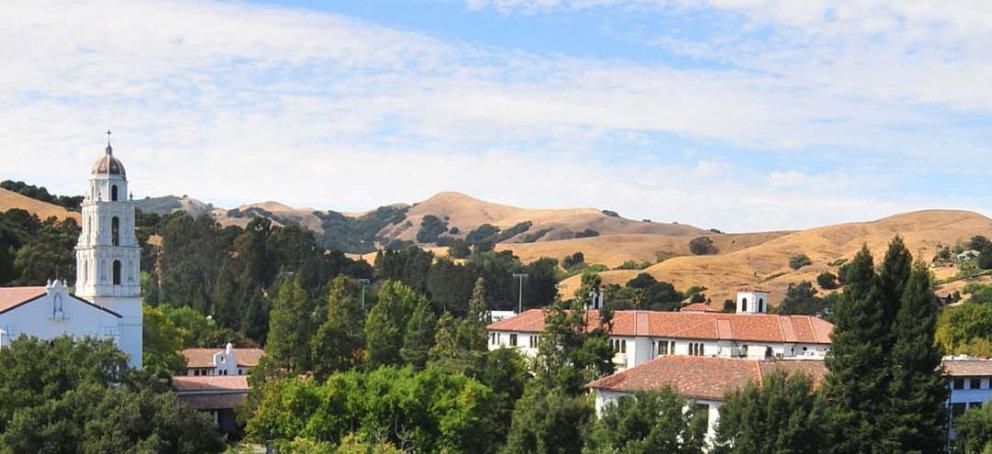喇沙修士的教育传统
2015年1月27日
1680年,圣. John Baptist De La Salle created a new religious community in his native France that he and his first followers called “The Brothers of the Christian 学校.” This name emphasized that the foundation of their educational work was 兄弟,基督徒, 它所关注的 学校. De La Salle was acutely aware of the condition of children from poor and working-class families, so he and the Brothers opened gratuitous 学校 where students received a Christian and human education, enlightening their minds and hearts and thereby leading them to salvation while becoming productive members of society.
The 学校 of the Brothers are sacred places – an extension of God’s care for students – where the role of the teacher is seen as a vocation, 来自上帝的精神召唤. 使用圣. Paul, De La Salle instructs the Brothers to see themselves as ambassadors of Jesus Christ. He tells the Brothers to adore God in their students, and urges them to write daily on their students’ hearts a letter dictated by God’s Holy Spirit. 两兄弟的 学校 are places where the relationship between teachers and students is highlighted, where teachers dedicated to their students teach first by example, where the Word of God enlightens and deepens human experience, and where students encounter God in the person of their teachers. It is not without reason that in 1950 the Church named St. John Baptist De La Salle Patron of Teachers.
从小学教育开始, the Brothers gradually developed secondary 学校, 理工院校, 大专院校. 在19世纪th 世纪, the Brothers opened 学校 in the Middle East, 亚洲, 加拿大和美国, so their work now continues in more than 83 countries. The worldwide educational mission of the Brothers is a compelling one, and, in the 20th 世纪, laymen and women – with backgrounds as diverse as our students – have chosen to partner with and share the ministry of the Brothers. 如今,他们的人数已超过89000人. As a Lasallian collegiate institution, Saint Mary’s begins with a sense of community among students, 教授, 和工作人员, since all join together to teach and to learn. This community comes together from a variety of faith traditions, 种族, and social and economic backgrounds. It engages in an educational adventure that permeates the entire collegiate environment and is identified by mutual respect and understanding, 对话中思想的开放, 渴望发现真相, and acceptance of others with both their uniqueness and limitations. Such a community nurtures an engagement in intellectual growth, a spirit of faith and service to others, 对正义的积极关注, and sensitivity to the dignity of the human person.
两兄弟的 宣言 frames the Lasallian mission in this way: it “awakens in students a serious attitude toward life and the conviction of the greatness of human destiny; it makes it possible for them, with intellectual honesty and responsibility, to exercise the autonomy of personal thought; it helps them use their liberty to overcome their own prejudices, preconceived ideas and social pressures, as well as the pressures that come from disintegration within the human person; it disposes them to use their intelligence and their training in the service of their neighbors; it opens them to others; it teaches them how to listen and to try to understand, 信任, and to love; it instills in them a sense of trustworthiness, 兄弟会, and justice; it opens them to the world and to life, 去欣赏大自然的奇妙和美丽, to the diversity and richness of art, to the conquests of science and technology, 到一个深刻的思考和反思, 文明的多样性, to the joys of friendship and of giving themselves to others.” [宣言 VI: 41] In all these ways and more, the Lasallian mission of the Brothers and those who join with them brings them and their students face to face with the God who creates, 爱, 并拯救他们.
Lasallian educators embrace four characteristics gleaned from De LaSalle’s writings: they view their teaching ministry as a call from God; they see themselves as coworkers with God; they have a special concern for the instruction of the poor; and they are guided by the inspiration of the Holy Spirit. They also appreciate De La Salle’s foundational principles and spirituality, and they are gratified by developments that have furthered God’s educational work in many places, on many levels and in many types of education. They look to a future in which students are empowered by astonishing advances in education, 在艺术和技术领域, in global awareness and in a fuller understanding of human destiny as given to us by the revelation and love of Jesus Christ.
